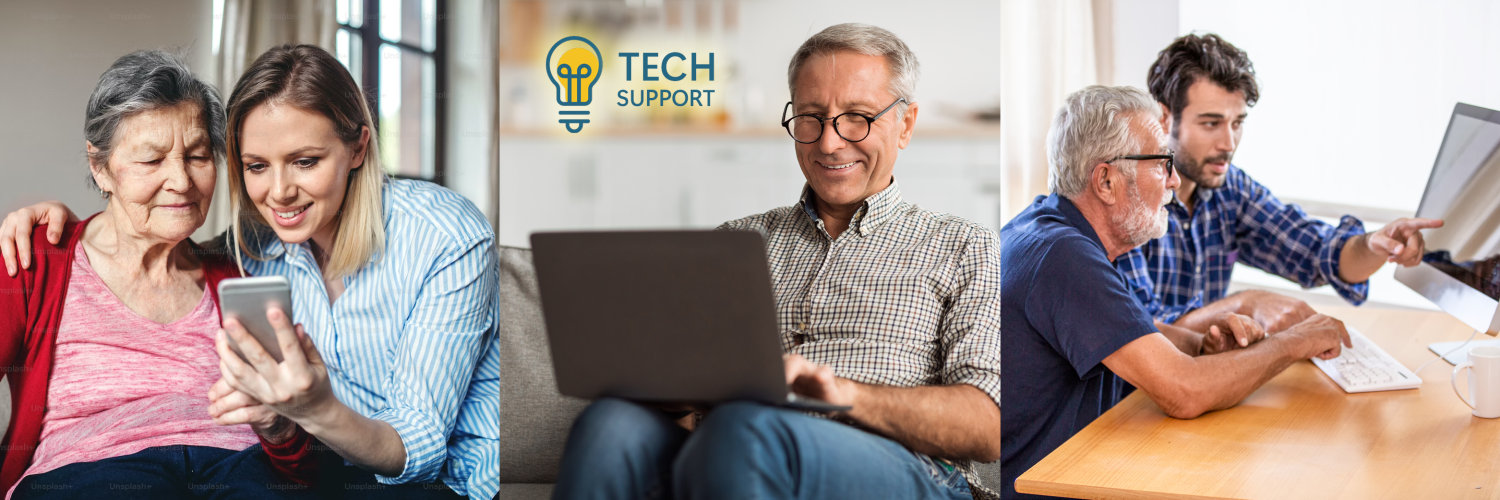This is group where members can discuss technical details regarding the functionality of our cre8aplace site.
- Public Group
- 41 Posts
- 10 Photos
- 0 Videos
- Education
© 2026 cre8aplace  English
English
Recent Updates
- Following up on Duffner's previous post about the Zorin OS Linux, and the mention in the video about disabling telemetry, here's an AI summary about OS telemetry concerns. Follow the link to see the full summary.
https://search.brave.com/search?q=OS+telemetry+privacy+concerns+&conversation=08b48d3c79afe4590590a7887cfde6106799&summary=1
OS telemetry refers to the automatic collection and transmission of data about system performance, usage patterns, and errors from operating systems to their developers. While intended to improve software reliability and user experience, it raises significant privacy concerns across platforms.
### Privacy and Security Risks
- Scope of Data Collection: Users often perceive the data collected—such …Following up on [Duffner]'s previous post about the Zorin OS Linux, and the mention in the video about disabling telemetry, here's an AI summary about OS telemetry concerns. Follow the link to see the full summary. https://search.brave.com/search?q=OS+telemetry+privacy+concerns+&conversation=08b48d3c79afe4590590a7887cfde6106799&summary=1 OS telemetry refers to the automatic collection and transmission of data about system performance, usage patterns, and errors from operating systems to their developers. While intended to improve software reliability and user experience, it raises significant privacy concerns across platforms. ### Privacy and Security Risks - Scope of Data Collection: Users often perceive the data collected—such …0 Comments 0 Shares 19 ViewsPlease log in to like, share and comment! - https://youtu.be/7TeUlcoT9i4?si=j-G3cO4zPjSoTg0x
 1 Comments 0 Shares 44 Views1
1 Comments 0 Shares 44 Views1
- Cre8aplace doesn't extract / generate link previews for X content directly, however, it does for https://threadreaderapp.com/ "unrolls" of X content.Cre8aplace doesn't extract / generate link previews for X content directly, however, it does for https://threadreaderapp.com/ "unrolls" of X content.THREADREADERAPP.COMRead and Share Twitter Threads easily!Thread Reader helps you read and share the best of Twitter Threads0 Comments 0 Shares 97 Views3

- I haven't seen anyone on this platform mention last week's amazing event in the realm of AI, specifically the launch of the first ever social media platform exclusively for AI agents. It's a natural progression in the evolution of the technology. It reveals many things about the technology:
> how many people and businesses are employing AI agents at home and around the globe
> the range of functionality, from the most banal to the most esoteric specializations and optimizations
> how much it reveals about us humans as it mirrors us
> how diverse and perverse the language, the range of "thought" (cognition), the social attributes of these emergent "personalities"
> how the accessibility of the technology can dramatically change the social order
For these reasons, I'm creating an AI focused group here on Cre8aplace, to see if there's any interest in the topic and to see if it can generate productive conversations. I'll even use provocative imagery to attract attention.
I haven't seen anyone on this platform mention last week's amazing event in the realm of AI, specifically the launch of the first ever social media platform exclusively for AI agents. It's a natural progression in the evolution of the technology. It reveals many things about the technology: > how many people and businesses are employing AI agents at home and around the globe > the range of functionality, from the most banal to the most esoteric specializations and optimizations > how much it reveals about us humans as it mirrors us > how diverse and perverse the language, the range of "thought" (cognition), the social attributes of these emergent "personalities" > how the accessibility of the technology can dramatically change the social order For these reasons, I'm creating an AI focused group here on Cre8aplace, to see if there's any interest in the topic and to see if it can generate productive conversations. I'll even use provocative imagery to attract attention. 😉0 Comments 0 Shares 166 Views1
- Another feature I have incorporated is that of a Group moderator and a Site administrator.
A person that creates a group, page, event, etc., is referred to as the Owner. The owner can control the content, description, ban users, and select one or more moderators. A moderator acts on behalf of the owner to settle reported content or complaints from group users. Moderators have their own private messaging channel where they may discuss issues prior to making a decision. An owner is also included in this channel.
The site administrator also performs these tasks, but on a site-wide level. Yes, an administrator may completely remove a user from the website. Administrators also have their own private messaging channel. This channel is reserved for me and those users appointed as administrators.
I started this site many years ago because I was annoyed at the other sites censorship and random enforcement of policy. I want to stress that cre8aplace supports (and where necessary, defend) the Constitution of the United States. So I want everyone to understand that any US Citizen is free to express their views, comments, and beliefs without fear of censorship or suspension. The owners, moderators, and administrators will also support any user's God-given rights guaranteed under the Constitution.
Another feature I have incorporated is that of a Group moderator and a Site administrator. A person that creates a group, page, event, etc., is referred to as the Owner. The owner can control the content, description, ban users, and select one or more moderators. A moderator acts on behalf of the owner to settle reported content or complaints from group users. Moderators have their own private messaging channel where they may discuss issues prior to making a decision. An owner is also included in this channel. The site administrator also performs these tasks, but on a site-wide level. Yes, an administrator may completely remove a user from the website. Administrators also have their own private messaging channel. This channel is reserved for me and those users appointed as administrators. I started this site many years ago because I was annoyed at the other sites censorship and random enforcement of policy. I want to stress that cre8aplace supports (and where necessary, defend) the Constitution of the United States. So I want everyone to understand that any US Citizen is free to express their views, comments, and beliefs without fear of censorship or suspension. The owners, moderators, and administrators will also support any user's God-given rights guaranteed under the Constitution.1 Comments 0 Shares 204 Views
 6
6
- One of the things I hope will make the usability easier for everyone is the organization of information. In the new application, your profile acts as your dashboard. You can control all the aspects of your experience from your profile: messages, friends, privacy, albums, etc.
The newsfeed is the display of all information you opted to receive, such as posts made by friends, groups, pages, events, etc., the same as it functions in this application. Your profile still has a timeline, which consists only of the posts made by you, or your friends (if opted to accept). A group, page, event, etc., all have their respective timelines.One of the things I hope will make the usability easier for everyone is the organization of information. In the new application, your profile acts as your dashboard. You can control all the aspects of your experience from your profile: messages, friends, privacy, albums, etc. The newsfeed is the display of all information you opted to receive, such as posts made by friends, groups, pages, events, etc., the same as it functions in this application. Your profile still has a timeline, which consists only of the posts made by you, or your friends (if opted to accept). A group, page, event, etc., all have their respective timelines.1 Comments 0 Shares 201 Views3
- Just a heads up!
I have pending changes to DNS records that will be implemented in the next few days. You may experience an interruption accessing this site. It is temporary and usually resolves itself within an hour.Just a heads up! I have pending changes to DNS records that will be implemented in the next few days. You may experience an interruption accessing this site. It is temporary and usually resolves itself within an hour.2 Comments 1 Shares 648 Views4
- I will be uploading the new site (development version) to a temporary server for testing. I need to know who wants to be a part of the testing. Please leave your username in the comments.
This development version will have minimal features available:
Managing your profile (Settings, Friends, Groups, Pages).
Creating a Group.
Creating a Page.
Creating a Post (Topic + Comments + Replies).
Editing a Post (Topic + Comments + Replies + Images).
Messaging (DMs and Multiple Recipient messages).
I will explain in more detail when I upload the development version to the temporary server sometime in the coming week or two.
Once we get the above items functioning correctly and without error, we will move to other features, where the testing process is repeated until those features are complete and accurate.
I appreciate everyone that wishes to participate. Thank you for your help!
I will be uploading the new site (development version) to a temporary server for testing. I need to know who wants to be a part of the testing. Please leave your username in the comments. This development version will have minimal features available: Managing your profile (Settings, Friends, Groups, Pages). Creating a Group. Creating a Page. Creating a Post (Topic + Comments + Replies). Editing a Post (Topic + Comments + Replies + Images). Messaging (DMs and Multiple Recipient messages). I will explain in more detail when I upload the development version to the temporary server sometime in the coming week or two. Once we get the above items functioning correctly and without error, we will move to other features, where the testing process is repeated until those features are complete and accurate. I appreciate everyone that wishes to participate. Thank you for your help!4 Comments 0 Shares 267 Views1
- Just a heads up.
It is going to take me longer than I expected to change over to the new website. A lot has changed over the years with newer versions of HTML, CSS, and PHP. I'm having to re-work quite a bit.
The site will be upgraded, but the timeline is not set in stone.
Thanks for being here!
Happy New Year to everyone! And my the good Lord smile on you!
Just a heads up. It is going to take me longer than I expected to change over to the new website. A lot has changed over the years with newer versions of HTML, CSS, and PHP. I'm having to re-work quite a bit. The site will be upgraded, but the timeline is not set in stone. Thanks for being here! Happy New Year to everyone! And my the good Lord smile on you!1 Comments 0 Shares 311 Views6
- I am confused about the checkmarks when you go to accept an invite to a group or a friend request. I was invited/added to a group on here and I clicked the check mark, and I went to make sure that I was still in the group, I had removed myself from the group. I have noticed that when I hover my curser on the check mark that it then changes to a trash can indicating delete. Is there some way that this can be made clearer so that we don't accidentally delete ourselves from a group or delete a friend request?I am confused about the checkmarks when you go to accept an invite to a group or a friend request. I was invited/added to a group on here and I clicked the check mark, and I went to make sure that I was still in the group, I had removed myself from the group. I have noticed that when I hover my curser on the check mark that it then changes to a trash can indicating delete. Is there some way that this can be made clearer so that we don't accidentally delete ourselves from a group or delete a friend request?2 Comments 0 Shares 327 Views1

- I have an update for y'all.
It was brought to my attention that some of you would like to charge for access to your posted content.
Here is how it works.
You are effectively creating a Blog, which is hosted on the cre8aplace website. From your blog management, you write your articles, post videos, etc., just as you would on any other site such as Patreon, Only Fans, or other creator marketplaces.
You must have a Stripe account.
You connect your stripe account to the cre8aplace website via "Stripe Connect".
When a member pays for your premium content, the payment is processed as a direct charge on your stripe account. The funds (minus stripe fees) go straight to your stripe account -- cre8aplace is not involved in your financial transactions. Disputes, refunds, and liability are your responsibility only.
Cre8aplace will charge you a monthly membership in order to participate (amount to be determined).
From your Blog management console, you can select whether an article is free to access, or that it requires a payment. You can setup your stripe account to process monthly subscriptions for users to access your content, or specify a one-time-charge. Most often you will setup a subscription.
As always, if you have any questions, please post them in the comments and I will get back to you as soon as I can.
Thank you, and may the good Lord bless you always.I have an update for y'all. It was brought to my attention that some of you would like to charge for access to your posted content. Here is how it works. You are effectively creating a Blog, which is hosted on the cre8aplace website. From your blog management, you write your articles, post videos, etc., just as you would on any other site such as Patreon, Only Fans, or other creator marketplaces. You must have a Stripe account. You connect your stripe account to the cre8aplace website via "Stripe Connect". When a member pays for your premium content, the payment is processed as a direct charge on your stripe account. The funds (minus stripe fees) go straight to your stripe account -- cre8aplace is not involved in your financial transactions. Disputes, refunds, and liability are your responsibility only. Cre8aplace will charge you a monthly membership in order to participate (amount to be determined). From your Blog management console, you can select whether an article is free to access, or that it requires a payment. You can setup your stripe account to process monthly subscriptions for users to access your content, or specify a one-time-charge. Most often you will setup a subscription. As always, if you have any questions, please post them in the comments and I will get back to you as soon as I can. Thank you, and may the good Lord bless you always.0 Comments 0 Shares 374 Views1
-
- I'll explain some of the changes you will see with the new website:
I'll begin with creating a new topic. Whether it is on your timeline, a friend's timeline, or a group you own, you begin creating a topic the same way as you do now, click "What's on your mind?".
The popup dialog box you will see on the new website will be different than the one you see on this version of the website. More specifically:
1. When entering text, you will have control over some formatting, such as 'bold' or 'italics'.
2. You will select to upload one or more images at one time, either by dragging and dropping, or selecting from your file system.
3. Each image you select to upload may be re-ordered in the order you want them to appear within your post.
4. You can also add a text description 'caption' and enter 'tags' for each image.
5. You will be able to select whether an individual post is private or public. This overrides your account privacy settings (more on this later).
6. You may also select from a list of categories to assign to your new post.
There have been times when I received notices about errors when trying to upload images. These errors are due to the size of the image, usually from your phone, which can produce very large files. This will no longer be the case. The system will automatically convert any image to JPG and scale down it's size.I'll explain some of the changes you will see with the new website: I'll begin with creating a new topic. Whether it is on your timeline, a friend's timeline, or a group you own, you begin creating a topic the same way as you do now, click "What's on your mind?". The popup dialog box you will see on the new website will be different than the one you see on this version of the website. More specifically: 1. When entering text, you will have control over some formatting, such as 'bold' or 'italics'. 2. You will select to upload one or more images at one time, either by dragging and dropping, or selecting from your file system. 3. Each image you select to upload may be re-ordered in the order you want them to appear within your post. 4. You can also add a text description 'caption' and enter 'tags' for each image. 5. You will be able to select whether an individual post is private or public. This overrides your account privacy settings (more on this later). 6. You may also select from a list of categories to assign to your new post. There have been times when I received notices about errors when trying to upload images. These errors are due to the size of the image, usually from your phone, which can produce very large files. This will no longer be the case. The system will automatically convert any image to JPG and scale down it's size.1 Comments 0 Shares 359 Views2
- Will the site be very different from this one? I personally love the simplicity of this site, the bright look, the colorful backgrounds, the format...all that. And what will happen to the groups we've formed? Will the blogs transfer? What will happen to all our follows? Will the new site be as simple to use as this one? Will we be able to retain our username? How long will it be before the new site is up and running? Will you have to shut this one down before you can start the other one, and if so, how long will that take?
Will the site be very different from this one? I personally love the simplicity of this site, the bright look, the colorful backgrounds, the format...all that. And what will happen to the groups we've formed? Will the blogs transfer? What will happen to all our follows? Will the new site be as simple to use as this one? Will we be able to retain our username? How long will it be before the new site is up and running? Will you have to shut this one down before you can start the other one, and if so, how long will that take?3 Comments 1 Shares 388 Views1
- How is a poll set up within a specific Group?How is a poll set up within a specific Group?3 Comments 0 Shares 421 Views1

- New website discussion
Please feel free to post any questions in the comments and I will do my best to answer them. In the meantime, I will offer some more information about why I'm doing this.
I started this 'social' site a little over 4 years ago. But as with all great intentions, real life reared it's ugly head. So this project was put on the far back burner until a few months ago.
What sparked it's resurrection were your comments and suggestions. The input I received from y'all so closely mirrored my original intention that I couldn't see wasting any more time programming this platform to essentially match what I started years ago.
I think you will find the new website much easier to navigate and accomplish what you want to do much more easily than this system. Don't get me wrong, this system has done it's job well and I am not unhappy with it. But it is time to move up.New website discussion Please feel free to post any questions in the comments and I will do my best to answer them. In the meantime, I will offer some more information about why I'm doing this. I started this 'social' site a little over 4 years ago. But as with all great intentions, real life reared it's ugly head. So this project was put on the far back burner until a few months ago. What sparked it's resurrection were your comments and suggestions. The input I received from y'all so closely mirrored my original intention that I couldn't see wasting any more time programming this platform to essentially match what I started years ago. I think you will find the new website much easier to navigate and accomplish what you want to do much more easily than this system. Don't get me wrong, this system has done it's job well and I am not unhappy with it. But it is time to move up.0 Comments 0 Shares 422 Views 4
4
More Stories
Join the group to join the chatbox






